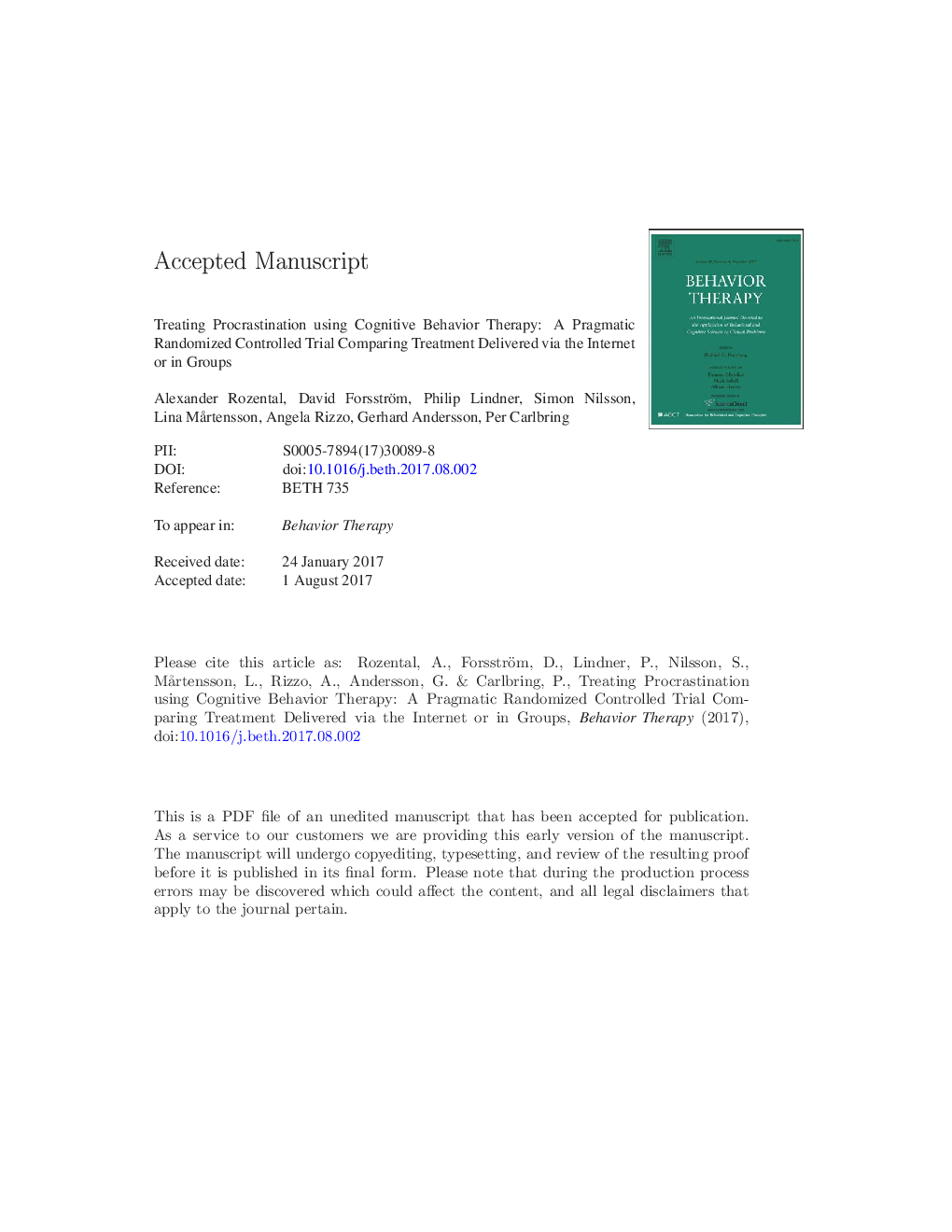| Article ID | Journal | Published Year | Pages | File Type |
|---|---|---|---|---|
| 7261654 | Behavior Therapy | 2018 | 52 Pages |
Abstract
Procrastination is a common problem among university students, with at least half of the population reporting great difficulties initiating or completing tasks and assignments. Procrastination can have a negative impact on course grades and the ability to achieve a university degree, but can also lead to psychological distress. Cognitive behavior therapy (CBT) is believed to reduce procrastination, but few studies have investigated its effectiveness in a regular clinical setting. The current study explored its effects using a pragmatic randomized controlled trial comparing treatment delivered during 8 weeks as self-guided CBT via the Internet (ICBT) or as group CBT. In total, 92 university students with severe procrastination were included in the study (registered as a clinical trial on Clinicaltrials.gov: NCT02112383). Outcome measures on procrastination, depression, anxiety, and well-being were distributed at pre- and posttreatment as well as 6-month follow-up. An outcome measure of procrastination was administered weekly. Linear mixed and fixed effects models were calculated, along with improvement and deterioration rates. The results showed large within-group effect sizes on procrastination, Cohen's d of 1.29 for ICBT, 95% Confidence Interval (CI) [0.81, 1.74], and d of 1.24 for group CBT, 95% CI [0.76, 1.70], and small to moderate benefits for depression, anxiety, and well-being. In total, 33.7% were regarded as improved at posttreatment and 46.7% at follow-up. No differences between conditions were observed after the treatment period, however, participants in group CBT continued or maintained their improvement at follow-up, while participants in self-guided ICBT showed some signs of deterioration. The findings from the current study suggest that CBT might be an effective treatment for those struggling with severe procrastination, but that a group format may be better for some to sustain their benefits over time and that the clinical significance of the results need to be investigated further.
Related Topics
Health Sciences
Medicine and Dentistry
Psychiatry and Mental Health
Authors
Alexander Rozental, David Forsström, Philip Lindner, Simon Nilsson, Lina MÃ¥rtensson, Angela Rizzo, Gerhard Andersson, Per Carlbring,
